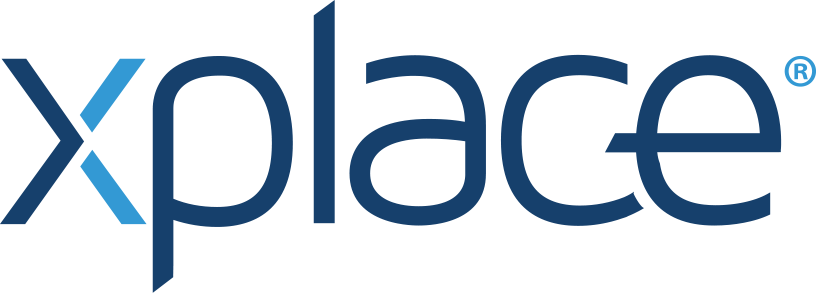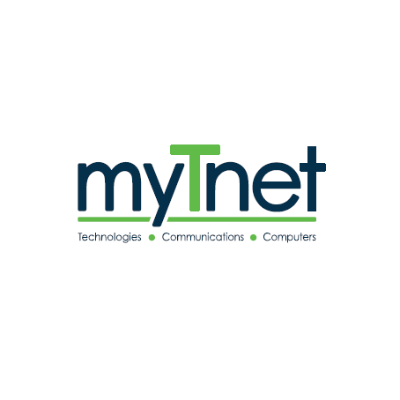
IT SEC
ניהול IT לסטארטאפים בסיד וארגונים קטנים
תל אביב-יפו, ישראל
פרילנסר
 צור קשר
צור קשר
אודותינו
שפות
עברית
שפת אם
אנגלית
שליטה קרובה לשפת אם
תחומי התמחות
בכירים
350 ₪ לשעה
טכנולוגיה
350 ₪ לשעה
נסיון תעסוקתי
ינואר 2020
-
דצמבר 2023
CISO- Chief Information security Officer
Pentera (pcysys)- In short, the Chief Information Security Officer (CISO) is responsible for:
- Developing and Implementing Security Strategy:
- Creating and executing an organization-wide information security strategy aligned with business goals.
- Risk Management:
- Identifying, assessing, and mitigating cybersecurity risks to protect the organization.
- Policy Development and Compliance:
- Establishing and enforcing security policies, standards, and procedures to ensure compliance.
- Incident Response:
- Leading efforts to respond to and recover from cybersecurity incidents, ensuring a swift and effective response.
- Security Architecture:
- Designing and maintaining a secure IT infrastructure and overseeing the implementation of security technologies.
- Security Awareness and Training:
- Implementing programs to raise awareness and providing training on security best practices.
- Vendor and Third-Party Risk Management:
- Assessing and managing security risks associated with third-party vendors and partners.
- Governance and Leadership:
- Providing leadership and direction to the organization's security governance structure.
- Budgeting and Resource Allocation:
- Developing and managing the information security budget, allocating resources effectively.
- Collaboration and Communication:
- Collaborating with IT teams and business units to align security measures with organizational objectives.
- Continuous Improvement:
- Monitoring the effectiveness of security measures and making continuous improvements.
- Reporting:
- Communicating security-related information to various stakeholders, including executive leadership.
2020
-
דצמבר 2023
Head Of IT
Pentera (pcysys) , ישראל- In short, the Chief Information Security Officer (CISO) is responsible for:
- Developing and Implementing Security Strategy:
- Creating and executing an organization-wide information security strategy aligned with business goals.
- Risk Management:
- Identifying, assessing, and mitigating cybersecurity risks to protect the organization.
- Policy Development and Compliance:
- Establishing and enforcing security policies, standards, and procedures to ensure compliance.
- Incident Response:
- Leading efforts to respond to and recover from cybersecurity incidents, ensuring a swift and effective response.
- Security Architecture:
- Designing and maintaining a secure IT infrastructure and overseeing the implementation of security technologies.
- Security Awareness and Training:
- Implementing programs to raise awareness and providing training on security best practices.
- Vendor and Third-Party Risk Management:
- Assessing and managing security risks associated with third-party vendors and partners.
- Governance and Leadership:
- Providing leadership and direction to the organization's security governance structure.
- Budgeting and Resource Allocation:
- Developing and managing the information security budget, allocating resources effectively.
- Collaboration and Communication:
- Collaborating with IT teams and business units to align security measures with organizational objectives.
- Continuous Improvement:
- Monitoring the effectiveness of security measures and making continuous improvements.
- Reporting:
- Communicating security-related information to various stakeholders, including executive leadership.
ינואר 2016
-
דצמבר 2019
PCI DSS team manager
Comsec- Assessment and Validation:
- Conducting comprehensive assessments of an organization's cardholder data environment (CDE) to ensure compliance with PCI DSS requirements.
- Validating the implementation and effectiveness of security controls and practices.
- Documentation Review:
- Reviewing and evaluating the documentation related to security policies, procedures, and processes to ensure alignment with PCI DSS requirements.
- Gap Analysis:
- Identifying any gaps or deficiencies in the organization's security measures and providing recommendations for remediation.
- Report Generation:
- Generating detailed reports outlining the assessment findings, including compliance status, vulnerabilities, and recommended improvements.
- Communication with Stakeholders:
- Interacting with various stakeholders, including executive leadership, IT teams, and relevant personnel, to communicate assessment results and recommendations.
- Guidance on Compliance:
- Providing guidance and recommendations to the organization on achieving and maintaining PCI DSS compliance.
- Offering advice on best practices for securing cardholder data.
- Risk Management:
- Assessing and identifying risks to cardholder data and providing guidance on risk mitigation strategies.
- Helping the organization develop and implement a risk management program.
- Continuous Monitoring:
- Advising on the implementation of continuous monitoring processes to ensure ongoing compliance with PCI DSS requirements.
- Recommending tools and technologies for monitoring and detecting security incidents.
- Training and Awareness:
- Providing training and awareness programs to educate the organization's staff on PCI DSS requirements and security best practices.
- Assistance with Remediation:
- Assisting the organization in developing and implementing remediation plans to address identified vulnerabilities and deficiencies.
- Offering ongoing support to ensure successful remediation efforts.
- Engagement with Acquiring Banks:
- Interfacing with acquiring banks and payment card brands on behalf of the organization to communicate compliance status and assessment results.
- Maintaining QSA Qualification:
- Staying current with PCI DSS standards and industry developments.
- Meeting ongoing certification requirements to maintain QSA status.
- In summary, a PCI QSA is responsible for conducting thorough assessments of an organization's compliance with PCI DSS, providing guidance on security measures, and facilitating the remediation of any identified issues. Their role is essential in ensuring the security of cardholder data within the payment card industry.
ינואר 2013
-
ינואר 2016
PCI QSA
קןמסק בעם , ישראל- A Payment Card Industry Qualified Security Assessor (PCI QSA) plays a crucial role in helping organizations achieve and maintain compliance with the Payment Card Industry Data Security Standard (PCI DSS). Their responsibilities include:
- Assessment and Validation:
- Conducting comprehensive assessments of an organization's cardholder data environment (CDE) to ensure compliance with PCI DSS requirements.
- Validating the implementation and effectiveness of security controls and practices.
- Documentation Review:
- Reviewing and evaluating the documentation related to security policies, procedures, and processes to ensure alignment with PCI DSS requirements.
- Gap Analysis:
- Identifying any gaps or deficiencies in the organization's security measures and providing recommendations for remediation.
- Report Generation:
- Generating detailed reports outlining the assessment findings, including compliance status, vulnerabilities, and recommended improvements.
- Communication with Stakeholders:
- Interacting with various stakeholders, including executive leadership, IT teams, and relevant personnel, to communicate assessment results and recommendations.
- Guidance on Compliance:
- Providing guidance and recommendations to the organization on achieving and maintaining PCI DSS compliance.
- Offering advice on best practices for securing cardholder data.
- Risk Management:
- Assessing and identifying risks to cardholder data and providing guidance on risk mitigation strategies.
- Helping the organization develop and implement a risk management program.
- Continuous Monitoring:
- Advising on the implementation of continuous monitoring processes to ensure ongoing compliance with PCI DSS requirements.
- Recommending tools and technologies for monitoring and detecting security incidents.
- Training and Awareness:
- Providing training and awareness programs to educate the organization's staff on PCI DSS requirements and security best practices.
- Assistance with Remediation:
- Assisting the organization in developing and implementing remediation plans to address identified vulnerabilities and deficiencies.
- Offering ongoing support to ensure successful remediation efforts.
- Engagement with Acquiring Banks:
- Interfacing with acquiring banks and payment card brands on behalf of the organization to communicate compliance status and assessment results.
- Maintaining QSA Qualification:
- Staying current with PCI DSS standards and industry developments.
- Meeting ongoing certification requirements to maintain QSA status.
- In summary, a PCI QSA is responsible for conducting thorough assessments of an organization's compliance with PCI DSS, providing guidance on security measures, and facilitating the remediation of any identified issues. Their role is essential in ensuring the security of cardholder data within the payment card industry.
ינואר 2010
-
ינואר 2013
Infrastructure security Consultant
Comsec- An Information Security Consultant is responsible for providing expertise and guidance to organizations seeking to enhance their cybersecurity posture. Duties typically include:
- Risk Assessment:
- Conducting comprehensive risk assessments to identify vulnerabilities and threats to an organization's information systems.
- Security Audits and Assessments:
- Performing security audits and assessments to evaluate the effectiveness of existing security controls and policies.
- Policy Development:
- Developing and updating information security policies, procedures, and guidelines to align with industry standards and best practices.
- Compliance Management:
- Ensuring that organizations adhere to relevant laws, regulations, and industry standards by establishing and maintaining compliance frameworks.
- Security Architecture Design:
- Designing and recommending security architectures to protect against cyber threats and ensure the confidentiality, integrity, and availability of information assets.
- Incident Response Planning:
- Assisting in the development of incident response plans and providing guidance during security incidents to minimize impact and facilitate recovery.
- Security Awareness Training:
- Creating and delivering training programs to educate employees on security best practices and raise awareness about potential threats.
- Vulnerability Management:
- Identifying and prioritizing vulnerabilities in information systems and providing guidance on remediation strategies.
- Security Technology Evaluation:
- Assessing and recommending security technologies, tools, and solutions to enhance the organization's security posture.
- Security Consulting and Advisory:
- Providing expert advice on security-related matters to executives, IT teams, and other stakeholders.
- Penetration Testing:
- Conducting penetration testing to simulate cyberattacks and identify weaknesses in the organization's defenses.
- Security Awareness and Education Programs:
- Developing and implementing ongoing security awareness programs to create a culture of cybersecurity within the organization.
- Collaboration with Stakeholders:
- Collaborating with internal and external stakeholders, including IT teams, executives, and third-party vendors, to address security concerns.
- Documentation and Reporting:
- Generating reports and documentation detailing assessment findings, recommendations, and remediation plans.
- Continuous Learning:
- Staying abreast of the latest cybersecurity trends, threats, and technologies to provide up-to-date and effective security solutions.
ינואר 2008
-
ינואר 2010
IT manager
Sec Tech
ינואר 2006
-
ינואר 2008
System administrator
פניקס חברה לביטוח- Server Management:
- Installing, configuring, and maintaining servers to ensure optimal performance and reliability.
- Network Administration:
- Managing and maintaining network infrastructure, addressing connectivity issues, and optimizing network performance.
- User Account Management:
- Creating, modifying, and managing user accounts, permissions, and access controls.
- Hardware and Software Maintenance:
- Overseeing hardware and software installations, updates, and troubleshooting.
- Security Measures:
- Implementing and maintaining security measures, including firewalls, antivirus, and access controls.
- Backup and Recovery:
- Performing regular data backups and developing recovery plans to safeguard against data loss.
- Troubleshooting:
- Identifying and resolving technical issues promptly to minimize downtime.
- Documentation:
- Creating and maintaining documentation for system configurations, procedures, and troubleshooting guides.
- Virtualization:
- Managing virtualized environments, including the configuration and optimization of virtual machines.
- Collaboration:
- Collaborating with other IT professionals and departments to address technical challenges and support organizational goals.
- Remote Administration:
- Providing remote administration services, allowing for efficient support across different locations.
- Continuous Improvement:
- Monitoring and optimizing system performance, as well as implementing improvements to enhance overall efficiency.
קורסים, הסמכות, לימודי תעודה
מאי 2019
ISO 27001 Lead Auditor
IT governance UKתארים אקדמיים
קישורים
4 תחומי התמחות

350 ₪
לשעה
בכירים
אנשים דומים ל- IT SEC

חוות דעת









 פרסום פרויקט
פרסום פרויקט


 התחבר עם פייסבוק
התחבר עם פייסבוק
 התחבר עם LinkedIn
התחבר עם LinkedIn
















